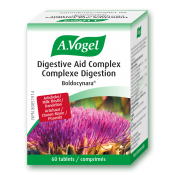What is a food coma?
A food coma is when the parasympathetic nervous system is activated in response to a mass in the gastrointestinal tract, and a specific state of sleepiness. These two components define what postprandial somnolence (food coma, food hangover, after dinner dip) is. Your parasympathetic nervous system, which works to rest and digest, is triggered, which tells your body to conserve energy in order to aid the break-down and absorption of nutrients.
When this happens, blood flow is decreased to other parts of the body, leaving you feeling tired and lazy. While feeling bloated and lethargic once in a while can happen depending on your diet, if it is recurring, you might want to take action to help prevent it from happening. Because as much as it is uncomfortable, postprandial somnolence is preventable.
Some of the most common symptoms of a food coma include:
What causes food comas?
It seems that without fail, the holiday heavy meals will trigger a food coma by the end of the day. Although there are occurrences of other heavy meal days during the year, why does it almost certainly happen to so many of us during the holidays?
- Tryptophan. Some say it can be triggered by the tryptophan, an amino acid found in turkey. This amino acid is a precursor for the production of serotonin which is a neurotransmitter essential for good sleep and mental health. But the thing is, tryptophan is found in a variety of foods we eat on a daily basis, such as nuts, other meats like chicken, beef and cheeses. So maybe tryptophan is part of the cause, but we can't blame it all on just this.
- High-fat, high-carb meals. Holiday meals are wonderfully diverse with all the different aromas, tastes and colors. It becomes enticing to over-eat on New Year's Eve, for example. These celebratory meals tend to be indulgent and contain high levels of fats, sugars and carbohydrates. They are usually high-calorie meals. The high levels of carbohydrates send your glucose levels to rise up fast and then to go down quickly, sending you in a more lethargic state.
- The meal size. Your body releases hormones to tell you you're hungry (ghrelin) and hormones to tell you it's full (leptin). If you're eating too quickly, your body might not be able to catch up with you. You then might experience bloating since you've already consumed too much before leptin could kick in.
Ways to prevent food comas
- Eat mindfully: Bringing your awareness to slowly eating your meal will give your body a better chance to transition from the hungry hormone over to leptin, which lets you know you're full.
- Move your body: Since we breathe less while we're eating, the levels of CO2 increases in our system which can make us feel less energetic. Going for a long walk after a big meal will help boost the amount of oxygen in our bodies. If you feel like staying inside, yoga is the perfect activity to break you out of your food coma. Try doing a simple seated twist; it's gentle and soothing and promotes digestion.
- Choose your food: One of the best ways to avoid a food coma is to not flood your bloodstream with extra sugar by eating more moderately sized portions or foods with a lower glycemic index. Try eating more complex carbohydrates with fiber like whole wheats, fruits, and vegetables. Proteins can also help keep your blood sugar at a stable level.
- Herbal remedy: A.Vogel uses the power of plants to create wonderful herbal remedies. For digestive issues such as bloating, acid reflux, burping, slow digestion and heartburn, you can take Boldocynara (tincture) or Digestive Aid Complex (tabs). It is an invaluable aid especially for digesting fats. It improves digestion by increasing bile secretion. Both tincture and tabs are made of artichoke, dandelion, milk thistle and boldo. All you need is 30 drops or two tabs before bed for a better tomorrow! However, if you know you are potentially going to have a heavier meal, you can also take it preventatively to help reinforce your digestive system.
- Herbal teas: In order to reduce the feeling of bloating, try drinking peppermint or ginger tea after your meal. Both are known to reduce stomach pains and sickness, and aid in digestion.
- Supplements: For when you know you'll be having a heavier meal, it can be good to call on reinforcements for an easier digestion. I personally rely on digestive enzymes and probiotics. They will help keep your digestion and elimination regular.
- Hydration: If you've overdone it on the salty foods, make sure you drink a tall glass of water. This will help excrete the excess sodium. It can also help dilute stomach acid, which is a preventative way to avoid acid reflux or acid burn.
With all that being said, make sure that you are having fun creating new memories of happiness and enjoyment this holiday season...not ruining your days by getting stuck with the uncomfortable food coma symptoms. The key is to eat with joy but to not overeat!
References:
https://elifesciences.org/articles/19334
https://www.vox.com/2015/8/7/9113645/science-food-hangover





